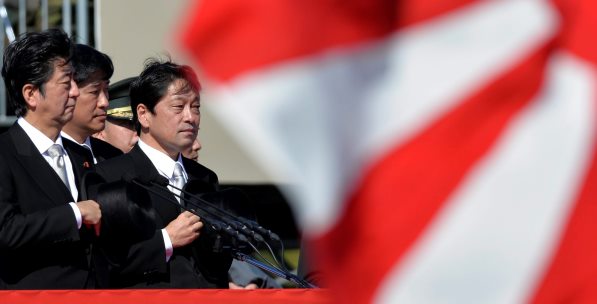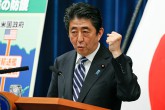In one section of Haruki Murakami’s Kafka on the Shore, Murakami introduced us to two soldiers who the hero of the story ran into in the middle of forest.
Long after the war these two soldiers assumed that Japan was still fighting in World War II. The most striking feature of this scene was that these two soldiers have never aged and continue to be 19 years old. As he did beautifully in Norwegian Wood, Murakami one more time was underlining how the memory keeps traumas alive despite decades passing. The pain does not vanish and sometimes only grows with every year that goes by, reproduction of memory, and contestation of different narratives.
East Asian nations since the end of World War II have not recovered from the traumas of the century. Nations ceased fire but barely ceased to remember the pains of the war in this part of the world. Remembrance became the main pillar of nationalism, sometimes instrumentalized by the politicians and sometimes shaped the policies of them, constrained the options and opportunities for the foreign policy makers of East Asia.
As we enter into what could be an Asian-dominated century, all these historical grievances are being revived and beginning to determine the nature of foreign relations between countries. Today talking about the East Asian politics is almost impossible without giving a reference to the historical disputes among the countries of the region. In these debates Japan has occupied the central stage.
These debates will constitute an important part of Japanese foreign policy in the coming decades. Japan’s relations with China in recent years are being, other than the emerging security dilemma in the South China Sea, challenged by the disputes over the interpretation of World War II.
The recent textbook wars between two countries and the tension after Prime Minister Abe’s visit to Yasukuni Shrine were only the most recent examples of these potential disputes over history.
Japan’s relations with South Korea are also poised with similar debates about the Comfort Women issue. Although it looks like a foreign policy dispute at first glance, these historical problems have significant domestic political repercussions and public opinion have become increasingly influential in the attitudes of the governments to these issue areas. Unfortunately at this point it is not clear what would provide the resolution of these problems in the region. The issues related to history proved to be extremely resilient to any sort of settlements. Even when countries manage to achieve a minimum level of reconciliation, more nationalist narratives always succeed to get the support of certain segment of population For Japanese diplomacy, especially in relation to South Korea, the history has become a major impediment for the improvement of relations that would provide a win-win situation for both countries in terms of economy and security. Even U.S. sponsored trilateral talks between three countries that were launched recently may face difficulties due to the domestic political considerations of the South Korean government.
Historical disputes are not the only challenges that Japanese foreign policy may encounter in the coming decades. The territorial sovereignty issues that have been revived by the countries of the region, as well as those still dormant, could be activated may generate an extremely dangerous crisis for the Japanese foreign and national security policy in the coming years. The Senkaku Island dispute with China, Takeshima Island dispute with South Korea and Kuril Island problem with Russia are waiting to be resolved. Recent tension between Japan and China, after China’s declaration of unilateral Air Defense Identification Zone, demonstrates the extent of the threat toward peace and stability in the region. The fact that the U.S. and Japan had a defense agreement may not be enough to deter China or to relieve the tension over Japan.
Especially with its current interpretation of Artic



